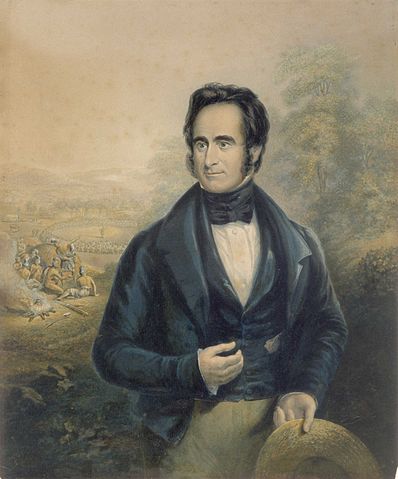Apart from a Frenchwoman wanting to move purposefully, SNCF is always in a hard-slog battle to compete with air travel, which is never easy. On some routes, it is in the lead (Paris-Marseille TGV services have an absolute majority), whereas the Paris-Orly Toulouse-Blagnac air route is the most congested in Europe. I guess this is due to the prosperity of Toulouse, the prevalence of its aerospace industry there and the extremely long journey times (5h27m direct, 5h24m with an interchange). When the LGV Sud-Europe Atlantique and the Toulouse branch of the GPSO (Grand Projet Ferroviaire du Sud-Ouest) are complete, journey times will be 3h14m with a stop in Bordeaux and 3h07m without, which will hopefully reduce air journeys drastically.
I know this is comparing apples and oranges, but roughly equivalent high-speed journeys in Germany for instance would take a very long time because of very generous timetabling and stopping patterns that prevent various routes from being competitive. For instance, Hamburg Hauptbahnhof-Munich Hauptbahnhof (admittedly with a few high-speed gaps, e.g between Würzburg and Nuremberg is about 780km, but the fastest direct service is 5h38m (5h36m possible with interchange). It stops in Hamburg-Harburg, Hannover Hauptbahnhof, Göttingen, Kassel-Wilhelmshöhe, Fulda, Würzburg, Nuremberg and Ingolstadt. I am aware that Germany's settlement pattern is very different (lots of medium-sized cities everywhere), but they have missed several opportunities for reasonable journey times, e.g. by not building bypasses. Apart from the Coburg bypass on the Erfurt-Nuremberg route to be opened this year, I struggle to think of high-speed bypasses in Germany where the town centre station is also served. Given that Germans dislike anything outside the ordinary as far as punctuality goes, timetable planning often involves very generous run and station dwell times. Probably, when they are planning timetables, they probably say, "How long does zis journey take at line speed? Five minutes? Give it an hour and ven it arrives on time, we will say, "Ve Germans are so efficient!"" There are plenty of stations that appear to be useless for high-speed traffic, given the low populations they serve, one example being Siegburg/Bonn station.
Austria also doesn't seem all that concerned about journey times: - whenever new railway improvements come along that should improve journey times, they always seem to slip in some more stops or journey time padding. For instance, I cannot understand the need to stop Railjet trains in Jenbach. Given that: -
1) Innsbruck, the major population centre, has a population of about 130,000, compared to Jenbach's 7,000
2) The Neue Unterinntalbahn (New Lower Inn Valley Railway) allows Jenbach to be bypassed at 220km/h
3) The Railjet trains, having a locomotive configuration, don't have particularly good acceleration
It therefore seems wasteful to stop trains in Jenbach. I believe the Austrians were aiming for "1-2-3" journey times from Vienna, i.e. 1 hour to Linz, 2 hours to Salzburg and 3 hours to Munich and Innsbruck. It is anybody's guess how this will be achieved if they are still pursuing it. However, they will face some competition from Westbahn, which is planning to operate fast services to Salzburg (2h10m, compared to 2h22m with Railjet services), with alternate services going onward to Innsbruck (not sure of the journey times).
Austria also doesn't seem all that concerned about journey times: - whenever new railway improvements come along that should improve journey times, they always seem to slip in some more stops or journey time padding. For instance, I cannot understand the need to stop Railjet trains in Jenbach. Given that: -
1) Innsbruck, the major population centre, has a population of about 130,000, compared to Jenbach's 7,000
2) The Neue Unterinntalbahn (New Lower Inn Valley Railway) allows Jenbach to be bypassed at 220km/h
3) The Railjet trains, having a locomotive configuration, don't have particularly good acceleration
It therefore seems wasteful to stop trains in Jenbach. I believe the Austrians were aiming for "1-2-3" journey times from Vienna, i.e. 1 hour to Linz, 2 hours to Salzburg and 3 hours to Munich and Innsbruck. It is anybody's guess how this will be achieved if they are still pursuing it. However, they will face some competition from Westbahn, which is planning to operate fast services to Salzburg (2h10m, compared to 2h22m with Railjet services), with alternate services going onward to Innsbruck (not sure of the journey times).
On the other hand, the French network has bypasses aplenty and is designed around great journey times. Cities with high-speed bypasses where town centre through stations are served from both ends that I can think of include Douai, Arras and Lyon. The LGV Sud-Europe Atlantique to Bordeaux will also include them at Tours (half in service, used by non-stop Bordeaux trains), Poitier and Angoulême, debatably Châtellerault as well. Currently, there are no non-stop trains running to Marseille (seasonal, I guess), but where they exist, they have tended to offer journey times of 3h05m for the 742km journey. Similarly, though the Paris-Bordeaux services only run on high-speed line to just beyond Tours, they offer non-stop journeys of 3h11m, which will drop to around 2h when the LGV Sud-Europe Atlantique enters service this year. I don't quite understand the lack of a planned bypass at Bordeaux, given the need for Paris-Toulouse journey times to be competitive and a bypass for Eurostar trains not stopping at Lille Europe would be good, as the line goes round three sides of a square, but RFF has generally been enthusiastic about building bypasses. I am loathed to speak favourably of anything British, but the Ashford bypass is a fantastic feat of engineering: - the line goes underground as it approaches the outskirts of Ashford, stays underground a little way, comes up alongside Ashford International station and runs on a flyover through Ashford, allowing trains to pass through at 300km/h. This means I can minimise the time I spend in the unsophisticated UK, MDR!
I particularly appreciate good journey times when it is necessary to receive foreign clients at the Paris office, as well as during fashion show season (I hope Marseille becomes a fashion capital one day). Many foreign visitors come to Paris thinking they will find a quintessentially French city with the Eiffel Tower, people eating frog legs and snails, people wearing striped jerseys and berets etc. The Eiffel Tower is there and isn't going anywhere, but with all the immigrants and the foreign cultures they inflict upon us, Paris is definitely not a French city! Other nearby cities, though they have immigrants, don't have them in quite such large numbers. When they ask to see a more French city, there are several easily available options, e.g. Strasbourg (1h46m), Bordeaux (discussed above) etc.
One day, I hope people will realise the value of great journey times and their contribution to making France great.
I particularly appreciate good journey times when it is necessary to receive foreign clients at the Paris office, as well as during fashion show season (I hope Marseille becomes a fashion capital one day). Many foreign visitors come to Paris thinking they will find a quintessentially French city with the Eiffel Tower, people eating frog legs and snails, people wearing striped jerseys and berets etc. The Eiffel Tower is there and isn't going anywhere, but with all the immigrants and the foreign cultures they inflict upon us, Paris is definitely not a French city! Other nearby cities, though they have immigrants, don't have them in quite such large numbers. When they ask to see a more French city, there are several easily available options, e.g. Strasbourg (1h46m), Bordeaux (discussed above) etc.
One day, I hope people will realise the value of great journey times and their contribution to making France great.


.jpg/640px-ICE_4_Pr%C3%A4sentation_Berlin_Hbf_(039).jpg)














.jpg/1024px-thumbnail.jpg)





_086.jpg/120px-Canap%C3%A9s_(Navidad)_086.jpg)















